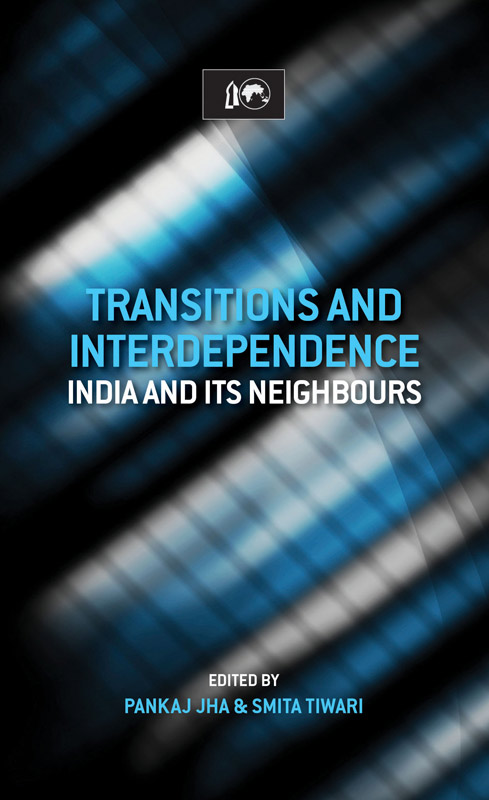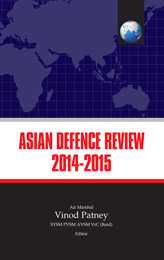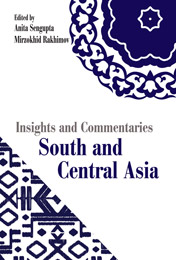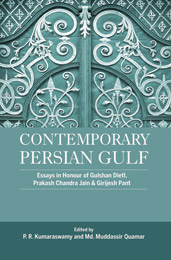Developments in South Asia in the areas of democracy, political economy and security in the last couple of years are intriguing and raise questions about whether the region is on the road to transformation. The years 2013 and 2014, particularly, have been ‘years of transition’ in South Asia. Almost all South Asia countries have undergone political transitions with cascading effects. These elections are significant for South Asian countries because the region has witnessed political instability for a long period of time. The elections in South Asia generated the hope that the most un-integrated region may become interdependent after coming up of new sets of political heads.
These developments in the region have an influence on India’s foreign policy and also mould its domestic politics; and vice-versa. India’s policy towards individual countries also has a decisive impact on the pace of on-going political transitions in a number of spheres: civil-military relations, foreign policy of individual countries, socio-political and economic dynamics and nature of governance. These transitions reflect the nature, behaviour and response of the transitory states towards the others. India, as an important stakeholder in the region is keenly observing these transitions in its neighbourhood.
This book titled: Transitions and Interdependence: India and Its Neighbours is the outcome of serious deliberations among well known scholars, diplomats and policy makers at the Fifth Asian Relations Conference organised by the Indian Council of World Affairs in collaboration with the Institute of Peace and Conflict Studies in February 2014. Papers presented in the conference have been thoroughly revised before publication and the editors acknowledge with gratitude theses insightful contributions.
Edited By Pankaj Jha and Smita Tiwari
Dr. Pankaj K Jha is Director (Research) with Indian Council of World Affairs (ICWA). He had worked as Deputy Director with National Security Council Secretariat, Prime Minister’s Office. He worked as Research Fellow with ICWA for two years and was Associate Fellow at the Institute for Defence Studies and Analyses (IDSA) for six years (2005-2011). He has done his PhD from the Centre of Southeast Asia and Southwest Pacific Studies (now known as Indo-Pacific Studies), School of International Studies, Jawaharlal Nehru University and is an Economics-Major from Delhi University. He has published research papers and articles in Strategic Analysis, Indian Defence Review, Indian Ocean Digest, World Focus, India Quarterly and South Asian Politics. He has given lectures in Institute for South Asian Studies (ISAS), Singapore; Centre for International Security Studies (CISS), Sydney University; Kunming University, Yunnan University, etc. His latest book is on India and China in Southeast Asia: Competition or Cooperation, 2013.
Dr. Smita Tiwari is Research Fellow at the Indian Council of World Affairs, New Delhi. Before joining the ICWA, she was a Guest Faculty in the University of Delhi and Jamia Millia Islamia, taking courses on various issues of India and South Asia. She has also worked as an Editorial Assistant at the United Service Institution of India (USI) and Institute of Peace and Conflict Studies (IPCS), New Delhi. She has also been part of many research projects.
Dr. Tiwari has received her PhD from South Asian Studies Division, School of International Studies, JNU in 2012. Her research interests include: governments and politics in South Asia, particularly Afghanistan and Pakistan; South Asia security, non-traditional security threats and challenges in South Asia, Indian Diaspora, international migration and development, India’s foreign and neighbourhood policies.
Contents
Preface
1. India’s Engagement with Asia: Contemporary Issues and Challenges
Shibashis Chatterjee
2. Enablers of Governance and Institutions in Afghanistan
Saifullah Ahmadzai
3. Political Change in Bhutan and its Impact on Regional Stability in South Asia
Mathew Joseph C.
4. ‘Naya Nepal’: Governance and Institutions
Anjoo Sharan Upadhyaya
5. Polarisation of Society in Nepal and its Impact
Shreedhar Gautam
6. Foreign Policy Challenges for Pakistan
Salma Malik
7. Civil–Military Dynamics in Pakistan
Rana Banerji
8. Globalisation and Trade Cooperation in South Asia: Towards a New Regionalism?
Delwar Hossain
9. South Asia: Current Trends in Transition and Emerging Outlooks
Jayadeva Uyangoda
10. SAARC’s Role in Regional Cooperation
Tika Jung Thapa and Shreedhar Gautam
11. India’s Trade and Investment with BCIM Countries
Indra Nath Mukherji and Subrata Kumar Behera
12. Security and Cooperation: SAARC, Other Regional Groupings and Initiatives
Sheel Kant Sharma


 Political Science
Political Science



